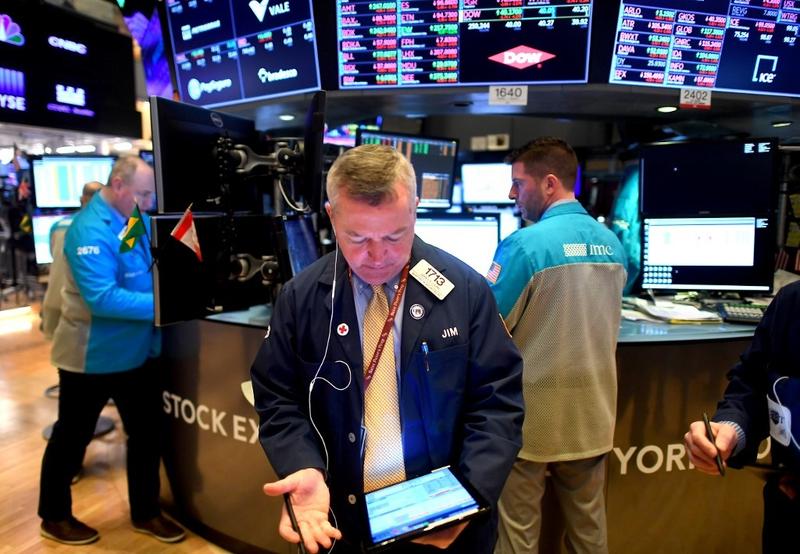 Traders work during the opening bell at the New York Stock Exchange (NYSE) on March 5, 2020 at Wall Street in New York City. (JOHANNES EISELE / AFP)
Traders work during the opening bell at the New York Stock Exchange (NYSE) on March 5, 2020 at Wall Street in New York City. (JOHANNES EISELE / AFP)
Turbulence in the US stock market won't subside until the number of the novel coronavirus infections outside China peaks and then begins to fall, a Wall Street analyst believes.
The number of new cases is declining in China, the epicenter of the outbreak, but continues to increase elsewhere, especially in Europe. The number of infected people in the United States is low, but rising-and that creates great uncertainty because no one knows how quickly the virus will spread or how severely it will disrupt the economy.
The worldwide spread of COVID-19 caused by a novel coronavirus has infected the market with what it fears most: uncertainty. The result is wild gyrations in US equity markets as investors dump stocks and seek safety in bonds, driving yields to record lows.
A foundation for recovery can't be built until the number of new infections begins to decline, allowing supply chains and production to be restarted-and there will be no quick fixes
"While lessons from the SARS outbreak of 2003 are becoming perhaps less relevant as this outbreak becomes very much more global, one key observation we think remains valid (is) that markets troughed when the rate of new infections peaked," Andrew Garthwaite, the head of global equity strategy at Credit Suisse, said in a research note.
ALSO READ: Coronavirus crash wipes US$5 trillion off world stocks
A foundation for recovery can't be built until the number of new infections begins to decline, allowing supply chains and production to be restarted-and there will be no quick fixes.
Jurrien Timmer, the director of global macro for Fidelity Investments in Boston, said the coronavirus is likely to drive earnings down at least through the second quarter of 2020.
"As fewer people travel and go on cruises and possibly are forced to work from home, demand could come down," he said in a research report. "As countries take turns going in for various forms of lockdown, supply chains could be affected as well. Airline and cruise ship stocks have been hit hard. Apple, Microsoft and Coca-Cola have warned about production delays. And companies as varied as toymaker Hasbro, Hewlett-Packard, and MasterCard expect to be hit.
A downturn in the broad economy will depress revenue, and lower earnings means that pre-virus stock prices for even the best companies were too high. The market's recent plunge took care of that. But there may be more trouble ahead.
S&P Global Ratings said the virus will create a "headwind to US growth in the near term", cutting US growth to 1 percent in the first half of the year from the previous estimate of 2 percent.
"The economy should rebound in the second half of the year as consumers release pent-up demand and firms rush to fill back orders and restock inventories," S&P Global Ratings said in a research report. "On a full-year basis, we would see 0.3 percentage point trimmed from our published full-year growth forecast of 1.9 percent (pre-virus) with risks tilted to the downside."
READ MORE: ADB: Coronavirus could cut global growth by 0.1% to 0.4%
Governmental policy is an important part of calming the market, including the Federal Reserve's decision last week to cut interest rates to 1.00-1.25 percent. Some analysts believe the Fed will approve another cut when it meets March 17-18.
"This is a clear signal that the Fed will not wait on the sidelines for long and let runaway selling on Wall Street continue given the potential effects on confidence as well as wealth," S&P Global said.


